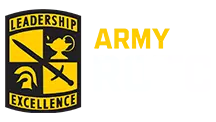Temple University Athletics
Amended House Summary

House Amended Settlement Highlights
Notice: The Order requires the NCAA to direct all of its member institutions to provide the Settlement Administrator “reasonably ascertainable information regarding the names and last-known contact information (addresses and/or email addresses) of NCAA Division I student-athletes who meet the criteria for” any of the following settlement classes:
- All student-athletes who compete on, competed on, or will compete on a Division I athletic team at any time between June 15, 2020 through the end of the Injunctive Relief Settlement Term [10 academic years after the Final Approval of the Settlement]
- All student-athletes who have received or will receive full GIA scholarships and compete on, or will compete on a DI men’s basketball, DI Women’s basketball, or FBS football team at an institution that is a member of one of the Named Defendant Conferences (including Notre Dame) and who have been or will be declared initially eligible for competition in DI at any time from June 15, 2016 through September 15, 2024
- If not part of (2), all student-athletes who compete on, competed on, or will compete on a DI athletic team and who have been or will be declared initially eligible for competition in DI at any time from June 15, 2016 thru September 15, 2024
- All current and former NCAA athletes who competed on a DI athletic team at any time between April 1, 2019 and September 15, 2024 who would have met the requirements for receiving an Academic Achievement Award under the criteria established by their schools for qualifying for such an Award. [This last one is to settle the companion Hubbard case]
Timeline
Oct 18, 2024: Notice campaign and claims period begins (“Notice Date”)
Dec 17, 2024: Allocation estimate available
Jan 31, 2025: Exclusion and objection deadline and claim period closes
Mar 3, 2025: Motion for final approve and response to objections due
April 7, 2025: Final approval hearing
Injunctive Relief Settlement Agreement
This section operationalizes the terms of the settlement and includes detailed provisions outlining both Defendants’ and Plaintiffs’ responsibilities under the settlement. It will be in effect for 10 years, with the possibility of an extension upon agreement of the parties and the Court.
Member Institution Payments for NIL, Institutional Brand Promotion or Other Rights: Schools can directly enter into NIL deals with student-athletes, as long as the NIL license does not authorize payments for the right to use a student-athlete’s NIL for a broadcast of competition footage. Schools may also act as marketing agents for student-athletes with third parties, but student-athletes have the right to a representative like a parent or lawyer when considering and negotiating licenses or endorsements. Schools may not enter into NIL agreements with prospective or enrolled student-athletes for a term longer than the student-athlete’s NCAA competition eligibility, with the exception that if schools, conferences, and the NCAA create promotional a student-athlete NIL during that student’s eligibility, they can negotiate to continue using that content after eligibility expires.
Third Party NIL Payments: The NCAA may not have any rules prohibiting third-party NIL payments to student-athletes (except as allowed by the Injunctive Agreement). Organizations owned or controlled by schools are not third parties, nor are member institution subcontractors third parties to the extent they are acting as an agent for payments from schools. Consequently, such entities’ payments or benefits to student-athletes will count toward the Pool.
Mandatory Student-Athlete Reporting: All Division I student-athletes will need to report NIL deals with third parties totaling more than $600 to (1) their school, and (2) a clearinghouse to be established, referred to as the “Designated Reporting Entity” in the settlement documents.
Named Defendant Mandatory Member Institution Reporting: Autonomy Conference member institutions will need to regularly report (1) their own NIL deals with student-athletes, (2) their student-athletes’ reported third-party NIL deals, and (3) Pool payments or benefits made to student-athletes or their families, to an enforcement entity. That entity may be the NCAA or may be a new creation; the settlement leaves this issue open.
Non-Defendant Member Reporting: If a non-Autonomy-Conference school provides Pool payments or benefits to its student-athletes—including incremental scholarships beyond the number permitted under current NCAA rules for each sport—the school will be bound by the obligations and limitations (including benefits, roster limits, reporting, and the Pool) of the settlement.
Benefits Pool: This provision sets up the Pool. All Division I schools will be permitted, but not required, to offer benefits to student-athletes above and beyond what is currently permitted by NCAA rules. The total amount of additional benefits schools will be permitted to provide—known as “the Pool”—will be capped at the same level for every institution.
- The Pool will begin in the first academic year after final approval of the settlement.
- The Pool will be set by totaling up 8 of the MFRS revenue categories for each of the Conference Defendant member institutions plus Notre Dame, then dividing them by the number of Conference Defendant member institutions plus Notre Dame, then taking 22% of that resulting dollar figure.
- The MFRS revenue categories include ticket sales; input revenue from participation in away games; media rights revenues; NCAA distributions and grants; non-media conference distributions; direct revenues from participation in football bowl games, as well as conference distributions of football bowl revenues; and athletics department revenues from sponsorships, royalties, licensing agreements, and advertisements.
- The Pool cap will be recalculated in the same way every 3 years. In the intervening second and third year of each three-year period, the Pool will increase by 4% over the previous year. Class counsel have two options to accelerate the recalculation of the Pool sooner than 3 years.
Institutional Decision-Making and Conference-Level Rules: Each member institution may decide whether and how much of any new benefits to provide to student-athletes, up to the Pool amount. Each conference may set conference-level rules or guidelines for its own members.
Counting Benefits Against the Pool: Any new payments or benefits to student-athletes from schools will count toward the Pool, except:
- Alston academic achievement awards count up to $2.5M per year.
- Athletic scholarships above the number currently permitted by NCAA Division I rules for a particular sport count up to $2.5M per year.
- No third-party payments to student-athletes count against the Pool, including third-party payments procured by a school, acting as a marketing agent for a student-athlete, for the student-athlete.
- Payments or benefits currently permissible through SAF and education-related benefits (other than Alston awards) do not count toward the Pool.
- The value of any benefits or payments provided by the NCAA itself directly to or for the benefit of student-athletes shall not count against the Pool.
All payments to student-athletes (for NIL, institutional brand promotion, or otherwise) and personal benefits (e.g., vehicles, travel expenses not permitted as of the date of Preliminary Approval by NCAA Division I, and the like) that are provided to a student-athlete or the family of a student-athlete by a Member Institution over and above the payments and personal benefits permitted by the NCAA rules as of the day of Preliminary Approval, shall be counted against the Pool.
Existing Benefits/Payments: For the term of the settlement, the NCAA will not create any rules imposing new restrictions on such existing benefits. However, this provision does not limit any Member Institution’s or any individual conference’s ability to independently elect to eliminate or reduce (a) any and all payments or benefits currently provided to student-athletes or (b) any payments or benefits that may be provided in the future.
Elimination of Scholarship Limits: All NCAA Division I athletic scholarship limits are eliminated, to be replaced with roster limits (see Appendix B). All athletic scholarships will be equivalency awards.- The new roster limits will apply only to schools providing any form of payment or benefit under the settlement, including incremental scholarships. But making any such payment or providing any such benefit triggers the roster limits in all sports.
- Changes in roster limits may not result in the loss of a scholarship for a then-current student-athlete.
- Roster limits may not result in a lower maximum number of scholarships in any Division I sport than currently permitted by NCAA rules.
New NCAA and Conference Rules: The NCAA and Autonomy Conferences may continue and pass new rules to be approved by the Court, including:
- Further clarifying and implementing, their existing prohibitions related to NIL transactions involving Associated Entities or Individuals. Such clarifying rule changes may include specifying that the NCAA and/or the Conference Defendants prohibit NIL payments by Associated Entities or Individuals (individually or collectively) to current or prospective student-athletes unless (1) for a valid business purpose, and (2) with compensation at rates consistent with those for similarly situated non-student-athletes.
- Rules limiting payments to student-athletes under the settlement to four years within a five-year period.
- Rules allowing student-athletes to seek guidance regarding whether NIL deals comply with the rules, and to regain eligibility by rescinding noncompliant agreements and forfeiting any money received.
- Rules prohibiting agreements designed to circumvent the intention of the settlement.
Enforcement of Injunctive Relief Settlement: Disputes between the NCAA, conferences, and member institutions on the one side, and student-athletes on the other, over the interpretation or enforcement of the Injunctive Agreement shall be resolved by the court.
Enforcement Authority and Arbitration Process for Enforcement of NCAA/Conference Rules Implementing This Injunctive Relief Settlement: Disputes over discipline imposed pursuant to the Injunctive Agreement or any new rules made to implement the Injunctive Agreement shall be arbitrated. The enforcement entity (whether the NCAA or something new) has the power to enforce the settlement, subject to arbitration.- Arbitrators will be picked by Defendants and Class Counsel working together and serve three-year terms.
- Student-athletes will not bear the cost of arbitration fees/expenses. Schools wishing to challenge disciplinary decisions will bear the fees and costs of arbitration.
- Arbitrations will typically be expedited (finished in less than 45 days), during which time any challenged discipline will be stayed absent a good cause determination.
- Student-athletes have the right to counsel in arbitration.
Legislation: Plaintiffs’ Class Counsel will support state or federal legislation codifying this Injunctive Agreement, including antitrust immunity and state law preemption. They agree not to lobby against any legislation if it is passed. They will also remain neutral on local, federal, or state legislation providing benefits to student-athletes beyond the settlement. Plaintiffs’ counsel will also remain silent, everywhere, on student-athlete “employment” and collective bargaining.
Alternative Structures: Student-athletes, schools, conferences, and the NCAA can continue to explore alternative benefit structures for student-athletes, including collective bargaining if it is ever allowed. If some or all student-athletes are definitively found to be employees, the defendants can ask to modify or walk away from the settlement.
Broadcast & Promotional NIL: For the duration of the Injunctive Agreement, the NCAA, its members, and broadcast licensees maintain an unchallenged right to broadcast college games, clips, etc., including using student-athletes’ NIL.
Eleventh Amendment and Sovereign Immunity: Plaintiffs acknowledge that the NCAA and Conference Defendants cannot waive sovereign immunity for their members.











